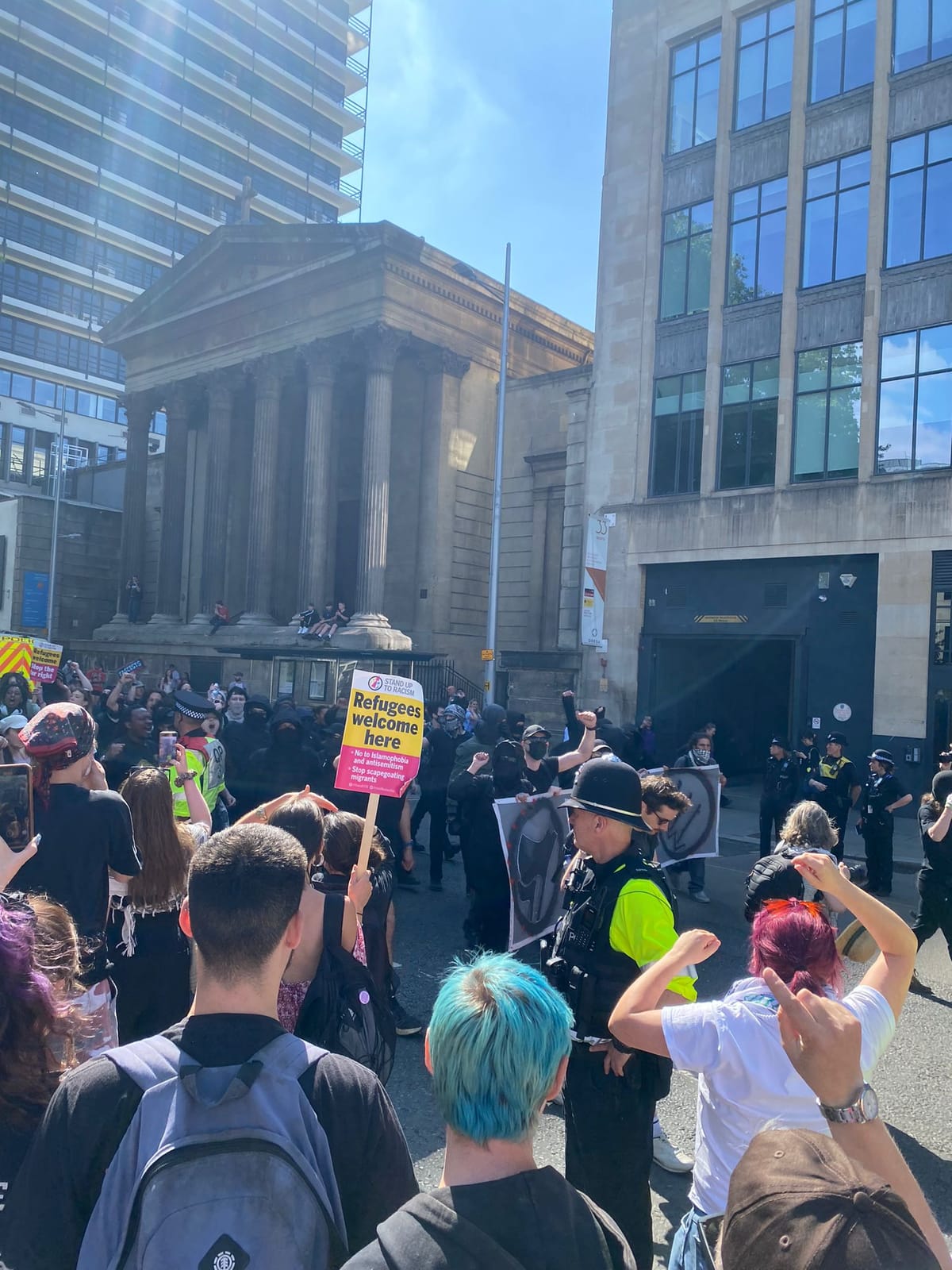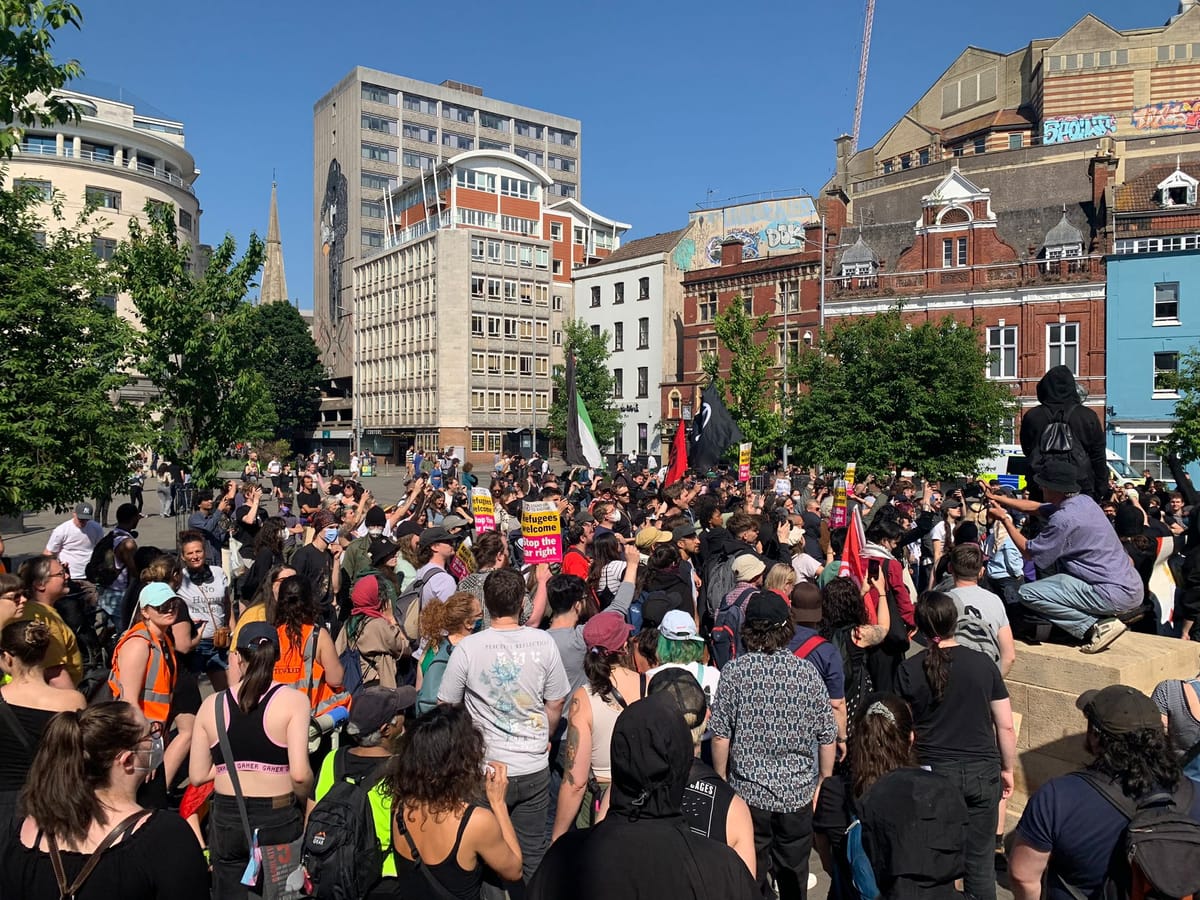By Arthur Clinton, News reporter
Two groups of protestors with opposing views on immigration gathered outside the Mercure Bristol Brigstow Hotel near Bristol Bridge.
The hotel, positioned in close proximity to the University of Bristol’s Riverside student accommodations, is being used to temporarily house asylum seeking refugees whilst their asylum claims are processed by the Home Office, a legal requirement under the Immigration and Asylum Act 1999.
Around 100 anti-immigration protestors arrived at the planned demonstration but were met by a larger group of almost 400 counter-protestors surrounding the hotel, holding placards with messages in support of refugees, such as ‘no one is illegal’. Police lines kept groups apart until the anti-immigration protestors, outnumbered four to one, eventually dispersed.
Catherine Frankpitt, a local business owner, attended the counter-protest and told Epigram: ‘Being really honest, what I also saw was a greater number of anti-immigration protestors than on previous occasions. And many of them would not describe themselves as ‘far right’, there were women and older people whose primary motivation was concern for the safety of women and girls.’
This is not the first time far-right and anti-racist groups have come face to face on the streets of Bristol. In May, UKIP protestors rallying in the City Centre for the ‘mass deportation [of] communists, far left, and Islamists’ were countered by antifascist groups.
‘I’ve never spoken to them – I’d like to’ – Antifascist and UKIP protestors clash in City Centre
By William White, News Editor and Mihai Roşca, Sports Subeditor There were clashes around the Cenotaph yesterday afternoon, as Bristol antifascist groups organised to counter UKIP protestors who were rallying for the ‘mass deportation’ of ‘communists, far left, and Islamists.’ Around 250 antifascist counter-protestors from Bristol Against Hate, Antifascist

On August 3 2024, violence broke out in Castle Park at a gathering following the Southport stabbing, with counter-protestors linking arms to prevent the far-right protestors getting close to a hotel in Redcliffe housing asylum seekers.
In an attempt to prevent violence and unrest, the police were given enhanced powers under section 60AA of the Criminal Justice and Public Order Act which enabled them to ask protestors to remove masks and face coverings. A section 35 dispersal area was also authorised, allowing the police to ask protestors to move or face arrest. Clarifying the purpose of the measures, Neighbourhood Policing Chief Inspector Serena Serjeant said:
‘We have seen people sometimes use face coverings to hide their identities in order to commit offences. By pre-authorising these powers, it will allow our officers on the ground the opportunity to engage with those wearing face coverings and ask them to remove them, so we can reduce the risk of criminal offences being committed.’
Discussing the role of police at the protest, Catherine was positive: ‘there was a strong police presence there but not heavy-handed in any way – they kept the two groups apart but let people have their say’, describing them as a ‘reassuring presence’.
While the enhanced powers of the police were not used to their full extent last Saturday, if discontent with immigration policy continues to grow, larger protests may follow – potentially eliciting a stronger police response.
Featured Image: Mihai Roşca / Epigram
